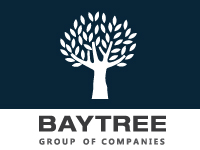CA
ON
캐나다 공인 컨설턴트 - 한인크레딧 컨설팅
전화: 416-897-8438
1 High Meadow Place, Unit 2 North York, ON

놀부 - 한식/일식/중식
전화: 416-221-4700
3 Elmhurst Ave, North York, ON

준비된 바이어 그룹 , BAYTREE 이너써클
전화: 416-226-5999
7030 Woodbine Ave. Suite 103 Toronto, ON

행복부동산 -수잔정 Home Standards Brickstone Real
전화: 647-866-7878
180 Steeles Ave W Unit 30, Thornhill, ON

1004열쇠
전화: 416-895-1004
4 Blakeley Rd. Toronto, ON

스마트 디지탈 프린팅 - 인쇄 및 디자인
전화: 416-909-7070
4065 chesswood dr. Toronto, ON
.jfif)
부동산캐나다 (Korean Real Estate Post)
전화: 416-449-5552
1995 Leslie Street Toronto, ON
.jfif)
대형스크린,LED싸인 & 간판 - 대신전광판
전화: 416-909-7070
4065 Chesswood Drive Toronto, ON

한인 시니어 탁구협회
전화: 647-209-8933
1100 Petrolia Rd Toronto, ON
4.jpg)
최고의 POS시스템 - 스마트 디지탈 POS
전화: 416-909-7070
4065 CHESSWOOD DR. NORTH YORK Toronto, ON
0.jfif)
고려 오창우 한의원
전화: 416-226-2624
77 Finch Ave W #302, North York Toronto, ON

골프 싱글로 가는길
전화: 647-291-2020
115 York Blvd Richmond Hill Toronto, ON

It would be a place where all the visitors including me share the life stories and experiences through their activities,especially on life as a immigrant.
Why don't you visit my personal blog:
www.lifemeansgo.blogspot.com
Many thanks.
블로그 ( 오늘 방문자 수: 132 전체: 261,127 )
과거사 규명에 대한 NY times article,1월 5일 2005.
lakepurity
2005-01-05
한국은 플라스마 텔레비젼을 미국에 팔고, 세계에서 가장 앞선 인터넷 사용 국가이기도 한데, 요즘에 한국 정세를 보면은, 1980대에 끝난 군사정권 당시의 일어난 사건뿐만 아니라 더 뒤로 돌아가,60여년전에 끝난 일제 강점하의 일들을, 현 남한의 정치적 정보관계자들은, 다시 조사하고 있다고 한다. 일제 강점하에서 일본에 협조했던 사람들을 조사하기위한 법안이 국회에 상정되였는데, 그때 당시 강제 노역에 동원된 내용을 조사하기위한 위원들의 본부사무실이 최근 서울시내 중심부로 이사왔다한다. 또한 이와는 별도로 군사정권하에서 이루어진 정보관련 조사를 담당한 위원들은 이미 조사를 시작했다. 또한 다른 사건들도 되돌아 보기위한 조사를 하고 있다한다.
이상의 뉴욕 타임스 기사의 일부 내용 우리말로 옮겨본 것입니다.
자세한 내용은 아래 원본을 참조 하십시요. 감사.
LETTER FROM ASIA
Korea's Tricky Task: Digging Up Past Treachery
By NORIMITSU ONISHI
Published: January 5, 2005
SEOUL, South Korea - This country may be selling plasma television sets to America and it may have the highest percentage of broadband Internet users in the world. But these days, South Korea's political and intellectual class is also looking back, not only at the military era that ended in the late 1980's but also at the Japanese colonial period that ended six decades ago.
A bill to delve into the issue of Korean collaborators during Japan's colonial rule recently moved through the National Assembly. Members of another committee to investigate forced labor under the Japanese have just moved into their new headquarters in downtown Seoul. Yet another committee, this one focusing on abuses by the National Intelligence Service under military rule, has already begun meeting. Others are looking at isolated incidents.
The talk of the past, mingled with comparisons with the Truth and Reconciliation Commission in South Africa, may sound discordant. But it is in keeping with the historic shift in power that has occurred here, one that saw this country's traditional power holders yield to new leaders with a very different take on history, North Korea and the United States. With the country at a turning point, the struggle over the past is a struggle over the future.
Supporters of the truth committees say that precisely because of this shift, South Korea can now come to grips with its past. Critics say the efforts amount to score-settling or, in a society where offspring are judged guilty by association, to a naked attempt to damage certain politicians.
Whatever the reason, South Korea is going ahead with an exercise that has taken place in several corners of the world, though not in East Asia - where a reluctance to take a hard look at a difficult past keeps the history intensely alive.
Each country in this region emphasizes the injustices and suffering it has endured. But South Korea will also look at how its own countrymen collaborated with the colonial rulers to forcibly send laborers to the far reaches of the Japanese empire and young women to serve as sex slaves for Japanese soldiers. And it will examine the postwar era of military rule, assessing responsibility for political assassinations and the periodic crackdowns, like the one on pro-democracy demonstrators in the Kwangju massacre of 1980.
It is, of course, too early to tell whether this exercise will lead to the goal of, if not national healing, at least national consensus. Supporters and critics alike, though, do start off agreeing that South Korea, until recently, had been governed by the same ruling class that stretched back to the colonial era.
After the end of Japan's 35-year occupation in 1945, high-ranking Korean military officials and bureaucrats serving in the Japanese Imperial Army and administration were purged or imprisoned. But by 1949 they had been freed and rehabilitated by South Korea's first president, Syngman Rhee.
"He couldn't run the country otherwise," said Youn Jung Suk, a professor at the Sejong Institute specializing in Japan-Korea relations.
These people went on to run the country, including under President Park Chung Hee, a Japanese-trained military officer whose 18-year reign was marked by economic growth but also by human rights abuses. Even after South Korea became a democracy in the late 1980s, their influence remained strong. Members of this class - who tend to be fiercely anti-North Korean and pro-American - survive today in the conservative Grand National Party, whose head is Park Geun Hye, the daughter of the late president.
Things changed in early 2003 with the surprising victory of the current president, Roh Moo Hyun, a political outsider and self-taught human rights lawyer. Then the change became complete earlier this year when the Grand National Party lost control of the National Assembly to the Uri Party, which supports Mr. Roh.
"The new people in power come from the periphery of Korean society," said Kim Mun Cho, a sociologist at Korea University. They tend to be more nationalistic as well, emphasizing the need to build ties with the North and casting a skeptical eye on the United States.
A few months after this historic shift in power, Mr. Roh used the 59th anniversary of the end of Japanese rule, on Aug. 15, to announce a campaign to look into the past.